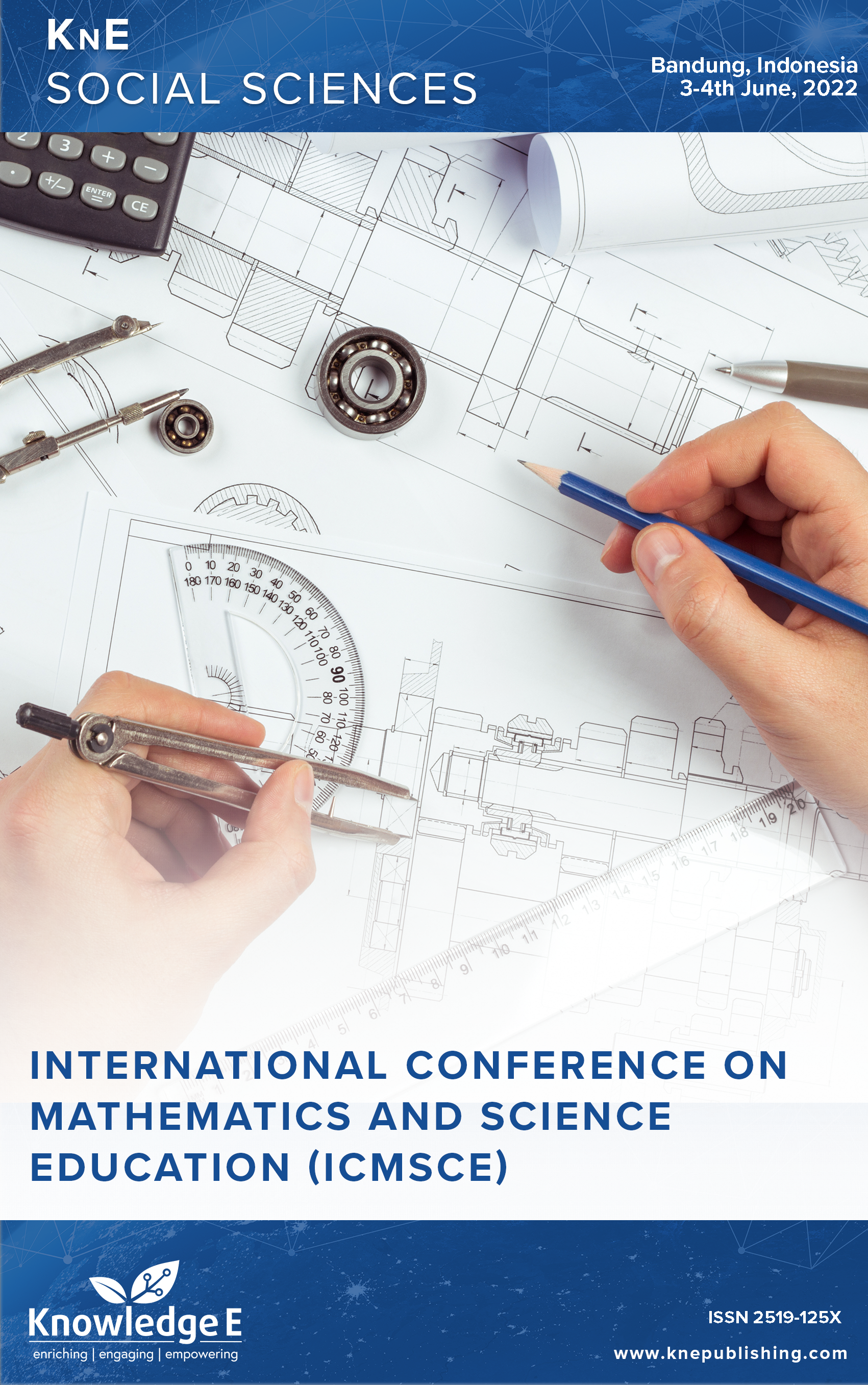Implementation of the Process Oriented Guided Inquiry Learning With Socioscientific Issues of Environmental Pollution to Improve Student Scientific Literacy
DOI:
https://doi.org/10.18502/kss.v9i13.15898Abstract
This study aimed to analyze the implementation of the Process Oriented Guided Inquiry Learning (POGIL) model with the Socioscientific Issues (SSI) of environmental pollution in an effort to improve students’ scientific knowledge. The population in this research was 53 grade VII students at a junior high school in Bandung. The research used a quasi-experimental design with 24 multiple choice questions as the research instrument. The experimental group was taught through the POGIL model with the SSI context, while the control group was taught through a scientific approach. Based on data analysis, the n-gain category of scientific knowledge of the experimental class in content knowledge, procedural, and epistemic domains were dominant in the medium category of 50%, high of 46%, and high of 73%. The n-gain category of the control class in content knowledge, procedural, and epistemic domains was dominant in the low category of 52%, low of 41% and high of 67%. The result obtained from the t-test on normal and homogenous data showed that there was a significant difference. Based on the data analysis, the scientific literacy skill of students who received POGIL with SSI was better than students who received the scientific approach, and the attainment of students’ scientific knowledge domains was in the high category.
Keywords: implementation, inquiry learning, socioscientific issues, environmental pollution, student Literacy
References
Holbrook J, Rannikmae M. The nature of science education for enhancing scientific literacy. Int J Sci Educ. 2007;29(11):1347–62. DOI: https://doi.org/10.1080/09500690601007549
World Economic Forum. New vision for education unlocking the potential of technology. http://surl.li/jfsdk
Yore LD, Treagust DF. Current Realities and future possibilities: language and science literacy—empowering research and informing instruction. Int J Sci Educ. 2006;28(2– 3):291–314. DOI: https://doi.org/10.1080/09500690500336973
Fouzder NB, Markwick AJ. Self-perception, individual learning style and academic achievement by a pair of bilingual twins in a secondary school. Int J Sci Educ. 2000;22(6):583–601. DOI: https://doi.org/10.1080/095006900289688
Chang C, Chang Y, Yang F. Exploring secondary science teachers’ perceptions on the goals of earth science education in Taiwan. Int J Sci Educ. 2009;31(17):2315–34. DOI: https://doi.org/10.1080/09500690802314868
Council NR. National science education standards. National Academy Press. Washington Dc; 1996.
P. 2015. PISA 2015: PISA results in focus. https://www.oecd.org/pisa/pisa-2015- results-in-focus.pdf
Hand B, Lawrence C, Yore LD. A writing in science framework designed to enhance science literacy. Int J Sci Educ. 1999;21(10):1021–35. DOI: https://doi.org/10.1080/095006999290165
Isjoni and F.LN. Pembelajaran Terkini: Perpaduan Indonesia- Malaysia. Yogyakarta: Pustaka Pelajar; 2008.
Hanson DM. Instructor ’ s Guide to Process Oriented Guided Inquiry Learning by With Contributions from other POGIL project personnel : Instructor ’ s Guide to Process Oriented Guided Inquiry Learning. Hampton: Pacific Crest; 2013.
Simonson SR, Shadle SE. Implementing process oriented guided inquiry learning (POGIL) in undergraduate biomechanics : Lessons learned by a novice. Journal of STEM Education. 2013;14(1):56-64.
Eberlein T, Kampmeier J, Minderhout V, Moog RS, Platt T, Varma-Nelson P, et al. Pedagogies of engagement in science: A comparison of PBL, POGIL, and PLTL. Biochem Mol Biol Educ. 2008 Jul;36(4):262–73. DOI: https://doi.org/10.1002/bmb.20204
Bénéteau C, Guadarrama Z, Guerra JE, Lenz L, Lewis JE, Straumanis A. POGIL in the calculus classroom. PRIMUS (Terre Ht Ind). 2017;27(6):579–97. DOI: https://doi.org/10.1080/10511970.2016.1233159
Straumanis A, Simons EA. A multi-institutional assessment of the use of POGIL in organic chemistry. ACS Symposium Series. 2008;226–239. DOI: https://doi.org/10.1021/bk-2008-0994.ch019
Çalik M, Coll RK. Investigating socioscientific issues via scientific habits of mind: development and validation of the scientific habits of mind survey. Int J Sci Educ. 2012;34(12):1909–30. DOI: https://doi.org/10.1080/09500693.2012.685197

